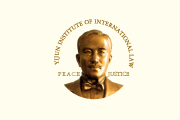CWR > Volume 3(2); 2017 > Correspondence
Research Paper
Published online: September 1, 2017
DOI: http://dx.doi.org/10.14330/cwr.2017.3.2.08
US-China Relations in Trump's First Term
John Riley
Sogang University School of Law
35 Baekbeom-ro (Sinsu-dong), Mapo-gu, Seoul 04107 Korea.
Corresponding Author: johnriley007@gmail.com
ⓒ Copyright YIJUN Institute of International Law. This is an Open Access article distributed under the terms of the Creative Commons Attribution Non-Commercial License (http://creativecommons.org/licenses/by-nc/3.0/) which permits unrestricted non-commercial use, distribution, and reproduction in any medium, provided the original work is properly cited.
Abstract
During the run up to the 2016 US presidential election, US presidential candidate Donald Trump eviscerated China on the campaign trail, blaming and characterizing it as the prime scapegoat for many of America's economic woes. Trump told a crowd in Indiana that the US "can't continue to allow China to rape our country" with respect to unfair trade practices and currency valuation. Trump and his advisors repeatedly threatened to label China a currency manipulator on day one in office and assess a 45 percent tariff on Chinese imports to punish Beijing for unfair trade practices. Once it became clear that Trump's campaign rhetoric could be effectuated following his victory in the presidential election, China publicly rejected the currency manipulation claims and avowed to protect its rights under the WTO and take a "tit-for-tat" approach with the US goods sold in China.
Keywords : Trump, US Trade Policy, China, Currency Manipulation





